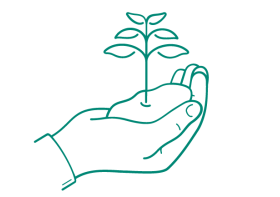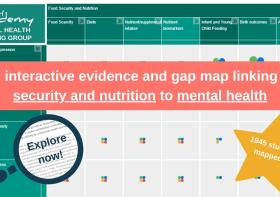Curriculum Enrichment Working Group
Details
The Curriculum Enrichment Working Group (2020-present) was established to better understand the skills, materials and support needs of university educators teaching critical ANH linkages around the world. By working with faculty members in different regions, it is hoped that this initiative will contribute to strengthening institutional capacities to develop and equip future researchers, practitioners and policymakers to deliver multisectoral nutrition actions.
The Group brings together experts in ANH research, university teaching, pedagogy and capability sharing to co-design and implement a new training of trainers (ToT) programme. Specific objectives are to:
- Develop a comprehensive needs assessment for university educators;
- Deploy the Needs Assessment to better understand the needs of university educators;
- Map and synthesise existing online learning content relevant to ANH teaching;
- Develop a suite of open-access blended teaching materials, hosted on a dedicated teaching area of the ANH Academy SCANR portal;
- Guide the design of a training of trainers programme, offering critical inputs and feedback on the framework developed by the ANH Academy.

NEW Curated Teaching Materials (Launched Nov 2023)
From November 2022 – January 2023, we hosted a weekly series of webinars to pilot a suite of teaching materials that were developed in response to the needs assessment. The seminars provided an opportunity for potential end users; educators and students, to learn about the topics and provide valuable feedback to ensure the materials were fit for purpose. As a result of these pilot sessions, we have refined our teaching materials and are excited to announce their launch for the ANH community. Modules currently available are:
-
Agriculture, Nutrition and Health Linkages, an Introduction
-
One Health
-
Gender, Equity and Empowerment
-
Climate Change, Environment and Sustainability
Explore the modules here.
Assessing Needs for Interdisciplinarity in ANH
In 2020, the CEWG conducted a needs assessment which consisted of two phases: an online survey, followed by a series of focus group discussions (FGDs). The survey was administered to faculty employed at post-graduation institutions worldwide and received 138 respondents. Four 1-hour FGDs were held with educators in post-graduate schools from low and middle income countries, with a total of 30 participants. Over half (54%) of respondents expressed interest and motivation to teach ANH in an interdisciplinary way, but qualitative findings indicated a lack of expertise in the topics as a major barrier. 61% of survey respondents reported a need for training on the use of teaching materials, 73% reported a need for a searchable online directory of teaching materials, and over half of respondents would be likely to use provided teaching materials, including essential readings, lecture slides, free online courses, student activities and handouts. You can read more about the needs assessment in the published paper in Global Food Security

Teaching Resources
The Working Group conducted a detailed mapping exercise of existing agriculture, nutrition and health postgraduate teaching resources available online. A directory of these resources is now available to explore on our website, compiled by Emily Fivian, IMMANA Research Assistant, in consultation with the Working Group. The majority of these resources are open access, with no fees associated. If you know o4f any materials that you feel the ANH community could use or adapt for interdisciplinary teaching and learning, please submit them via this form or contact [email protected], and we will add them to the directory.
Members
Core members:
- Francis Zotor, Director, International Programmes and Head of Department, Family and Community Health, University of Health and Allied Sciences, Ghana
- Louise Whatford, Post-doctoral Researcher, Royal Veterinary College and Education Coordinator, IFSTAL
- Mike Hill, Assistant Professor in Learning and Teaching, Centre of Excellence for Learning and Teaching (CELT), LSHTM
- Pamela Marinda, Lecturer, Department of Food Science and Nutrition, University of Zambia
- Rosemary Isoto, Assistant Professor, Department of Agribusiness & Natural Resource Economics, School of Agricultural Sciences, Marakere University
- Shweta Khandelwal, Associate Professor, Public Health Foundation of India (PHFI)
- Sudha Narayanan, Associate Professor, Indira Gandhi Institute of Development Research (IGIDR)
- Tim Chancellor, Director of Capacity Strengthening and Partnerships, Natural Resources Institute, University of Greenwich
ANH research and communications members:
- Emily Fivian, Research Assistant, IMMANA Programme, LSHTM
- Suneetha Kadiyala, Principal Investigator, IMMANA Programme and Associate Professor, LSHTM
Co-chairs:
- Lauren McIntyre, Research Uptake Manager, ANH Academy, IMMANA Programme, LSHTM
- Joe Yates, Research Fellow, ANH Academy Co-Director, IMMANA Programme, LSHTM
- Stephanie Ray, Research Uptake Manager (maternity cover), ANH Academy, IMMANA Programme, LSHTM


















